As the demand for at-home cosmetic dental solutions continues to rise, the home teeth whitening device has become one of the most sought-after tools in oral care. For oral care product brand owners, ensuring consumer satisfaction doesn’t stop at manufacturing quality — it also depends heavily on how well end-users understand proper use. Therefore, communicating the correct precautions during use and guidance on how to maximize the effectiveness of the home teeth whitening device becomes a vital brand responsibility. This article provides a strategic overview for brand managers looking to ensure customer satisfaction and product performance through proper usage education.
Before consumers begin whitening treatments, it’s essential they understand how the device works — whether it uses LED light activation, peroxide gel, or blue light technology. Without this knowledge, incorrect handling may reduce the effectiveness of the home teeth whitening device. Brand owners should work closely with manufacturers to include simple, multilingual instructions and intuitive visuals.
Key Precaution:
Avoid using the device without reading the product manual in full. Misuse can lead to tooth sensitivity, gum irritation, or unsatisfactory results.
Many users mistakenly assume that longer or more frequent use leads to faster results. This misconception can result in enamel erosion or heightened sensitivity. Manufacturers and brands must emphasize the recommended usage duration per session (usually 10–30 minutes) and overall treatment cycle.
Home teeth whitening device usage precautions should include:
Do not exceed recommended time per session.
Avoid using more than once per day unless clinically approved.
Take rest days to allow enamel to recover.
How to maximize the effectiveness: Adhering strictly to timing helps achieve visible whitening without compromising tooth integrity.
For whitening agents to work efficiently, teeth must be clean and dry before application. Residual saliva or plaque can act as barriers and reduce gel penetration.
Recommendation for Brands:
Provide pre-treatment cleaning wipes or suggest brushing with a non-fluoride toothpaste 30 minutes before use. This helps increase the device’s efficacy and reduces user error.
Home whitening is designed for gradual change. Sudden or intensive whitening may backfire. Brands should promote a schedule that focuses on consistent daily use over a specified period (e.g., 7–14 days) rather than sporadic or aggressive applications.
How to maximize the effectiveness of the home teeth whitening device:
Encourage a routine.
Use daily reminders or app-based scheduling (for smart devices).
Avoid skipping treatment days.
Immediately after whitening sessions, teeth are more porous and prone to discoloration. Users should be instructed to avoid coffee, tea, red wine, tobacco, or dark foods for at least 1–2 hours post-use.
Precautions during use must include a post-treatment guide such as:
“For best results, avoid staining agents after each session to maintain whitening effects longer.”
This step is often overlooked but critical in maintaining results, especially when users invest in multi-day kits.
One of the most common side effects of whitening treatments is tooth sensitivity. Brands should prepare users for this possibility and explain how to manage it (e.g., spacing sessions farther apart, using desensitizing gels).
Home teeth whitening device usage precautions should also state:
Discontinue use if severe discomfort occurs.
Consult a dentist before resuming treatment.
Not suitable for children or individuals with active dental issues.
For B2B buyers, such as oral care brands and private-label distributors, product success is tied not only to device performance but also to consumer understanding. By clearly communicating precautions during use and best practices on how to maximize the effectiveness of the home teeth whitening device, you ensure better customer outcomes and fewer product returns.
Recommendation:
When selecting a manufacturing partner, prioritize those who offer support in developing comprehensive instruction manuals, visual guides, and even digital tutorials. A well-informed user is the best advocate for your brand.

Reasons why brands should start teeth whitening kit business
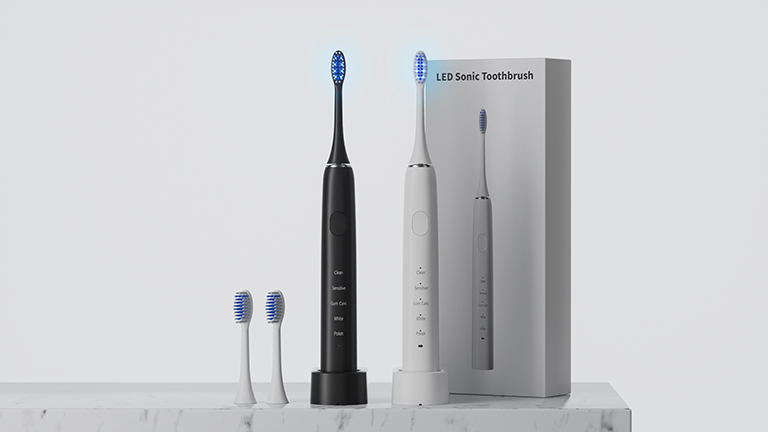
The Truth About Blue Light Whitening in OEM Electric Toothbrushes

Do At-Home Light Therapy Teeth Whiteners Really Work?
-2-scaled.png)
Clinical Validation of Modern Teeth Whitening Technologies: A Guide for Oral Care Product Brands

How Long Does It Take for a Teeth Whitening Device to Show Results?
-2-scaled.png)
The Scientific Principle of Red and Blue Light Teeth Whitening Device: How Can 460nm Blue Light and 630nm Red Light Safely Whiten Teeth?
.jpg)
LED Whitening Toothbrush OEM | Advanced Oral Care Manufacturing Solutions
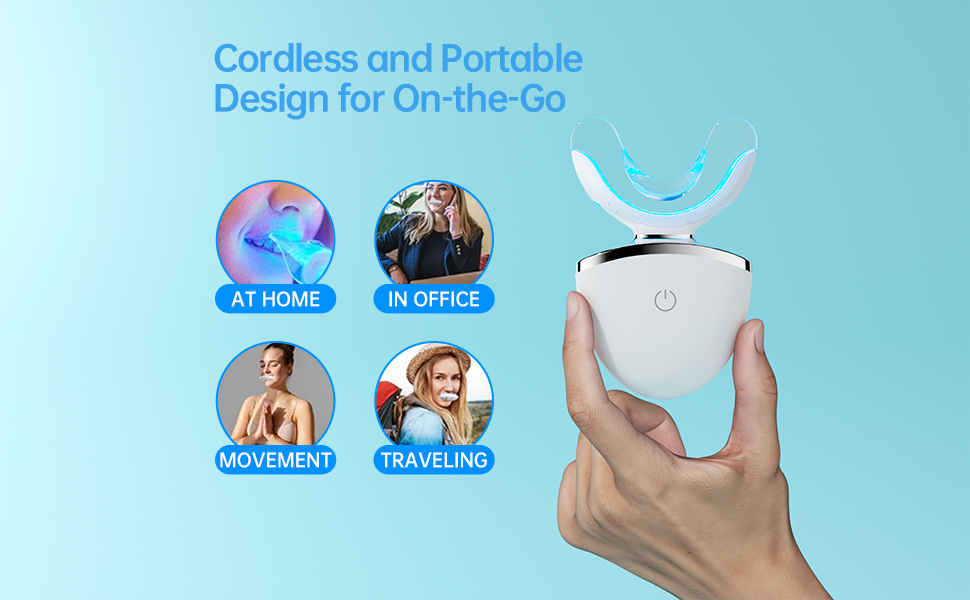
How Often Should I Use a LED Teeth Whitening Light? A Manufacturer’s Guide
.jpg)
Blue Light Whitening Device Wholesale
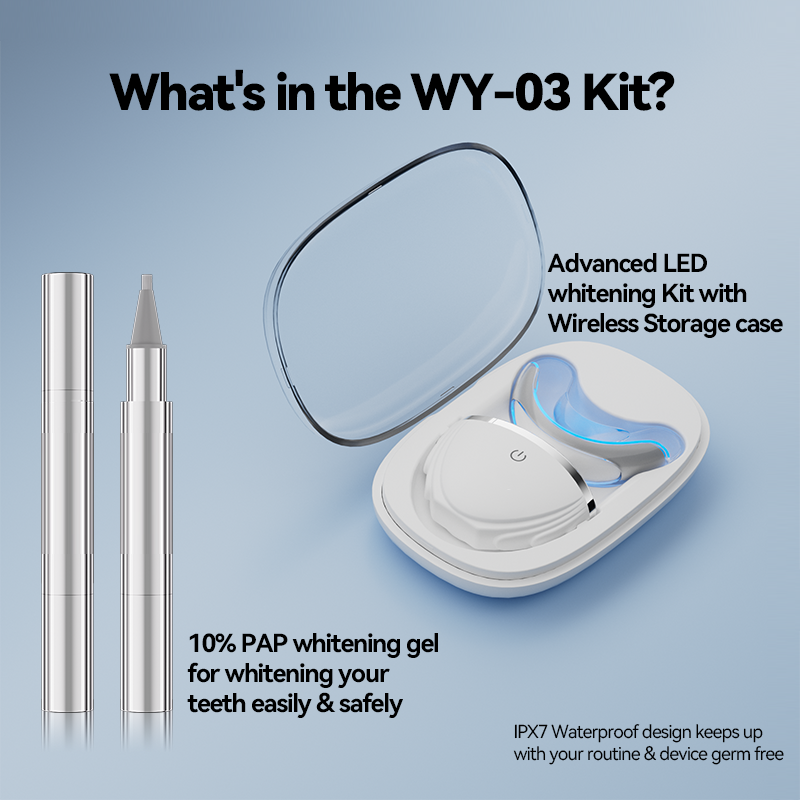
What Gives Some Teeth Whitening Devices Competitive advantage?
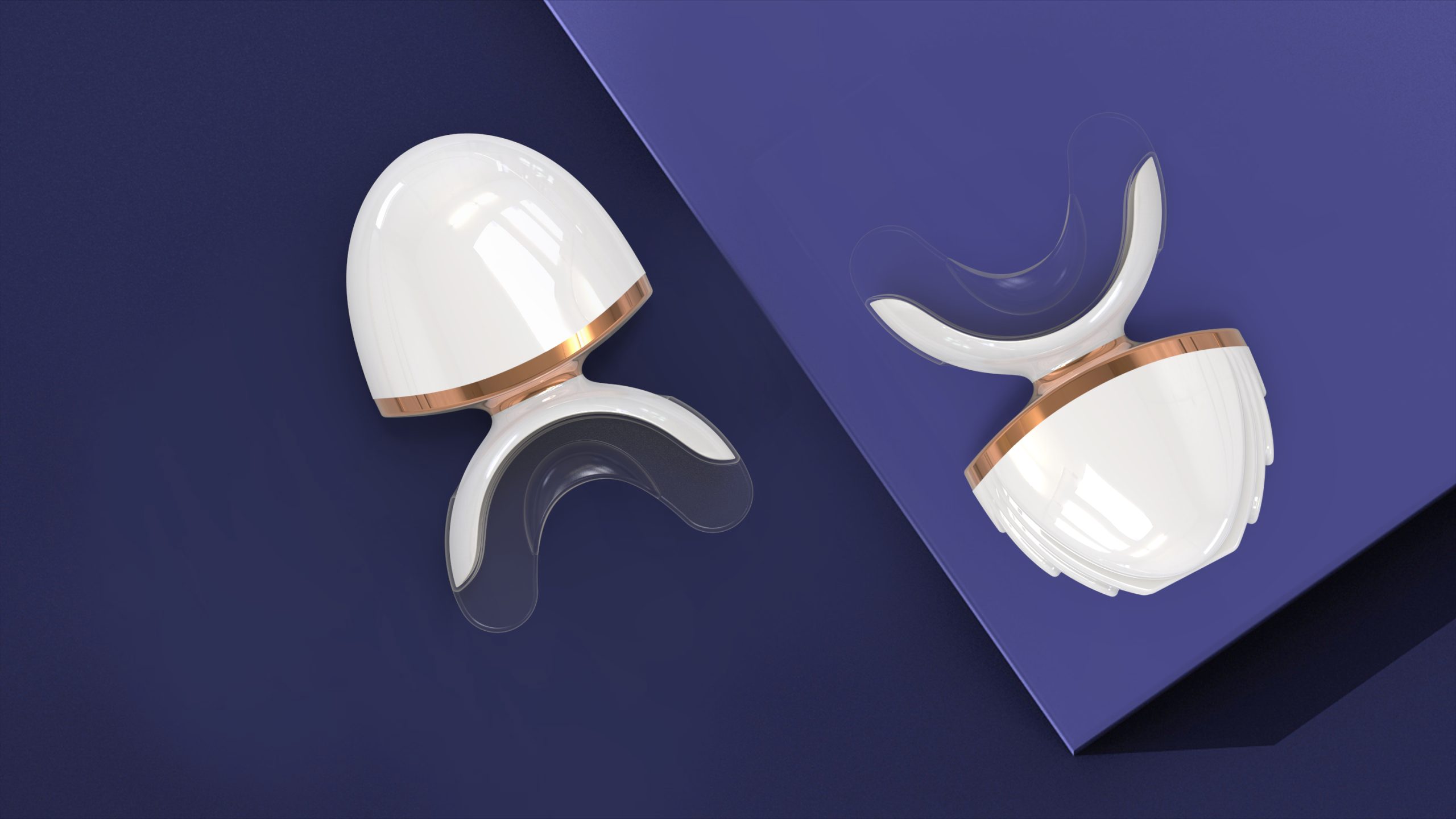
Is Blue Light Under 480nm Safe for Teeth Whitening Devices?
.jpg)
Enamel Transparency Plus Taste Loss – Permanent Damage?
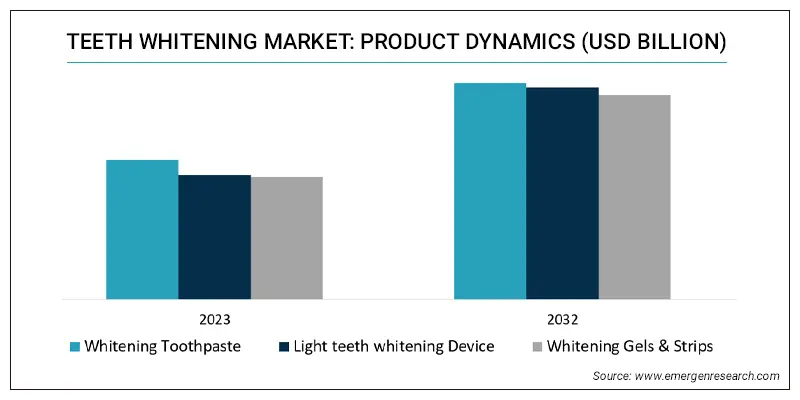
New Technical Possibilities for Wireless Teeth Whitening Devices

Market Analysis of Red and Blue Light Teeth Whitening Devices: How to Find a Teeth Whitening Device Breakthrough in Differentiated Technology?
-3-scaled-1.jpg)
Teeth Whitening Tech: Is LED Scientifically Superior to UV for OEM Applications?
.jpg)
How Does Cold Light Wavelength Affect Bleach Decomposition?